25 February 2020
for Madrid Nuevo Norte

Distrito Castellana Norte (DCN) has issued the “Informe de las marchas exploratorias de seguridad en los barrios colindantes a Madrid Nuevo Norte” (Report on the Safety Audits in Neighbouring Districts of Madrid Nuevo Norte). This report is the result of the joint work of DCN and the UNESCO Chair on Gender Equality Policies in Science, Technology and Innovation at the Technical University of Madrid (UPM).
DCN and the UNESCO Chair work together to incorporate the gender perspective into the Madrid Nuevo Norte (MNN) project. Together, they attended the 7th edition of the Engendering Conferences, organized by UN-Habitat under the umbrella of Urban October, which address the integration of gender in major urban regeneration processes; as well as the seminar “Urban Planning, Gender and Participation”, organized with the Menéndez Pelayo International University (UIMP).
Madrid Nuevo Norte is the first major urban development project in Spain to have, since its inception, a gender impact assessment. This report reviews and takes into account gender-based differences when designing the city. Thus, the gender perspective has been present cross-sectionally and at all levels in the design of MNN.
Along this line, DCN’s Department of Social Engagement designed, together with the UNESCO Chair, a specific project for women in the northern districts of Madrid, focused on participation. Because having the vision of all groups is what will help create liveable cities. As far as women are concerned, the stakeholders involved in urban planning must be able to reach them, so that their voice is sufficiently represented and, finally, so that they are also part of the process of creating their city.
With this objective in mind, the “Exploratory Workshops on Gender” were born. As their name implies, this project revolved around a series of preparatory workshops with women from districts adjacent to MNN as well as Safety Audits around those districts. The conclusions of these works are included in a report, also written by the UNESCO Chair, where the areas perceived by women as safe or unsafe have been mapped. Almost 80 people attended the official presentation of the report, at La Casa del Lector de Matadero Madrid.
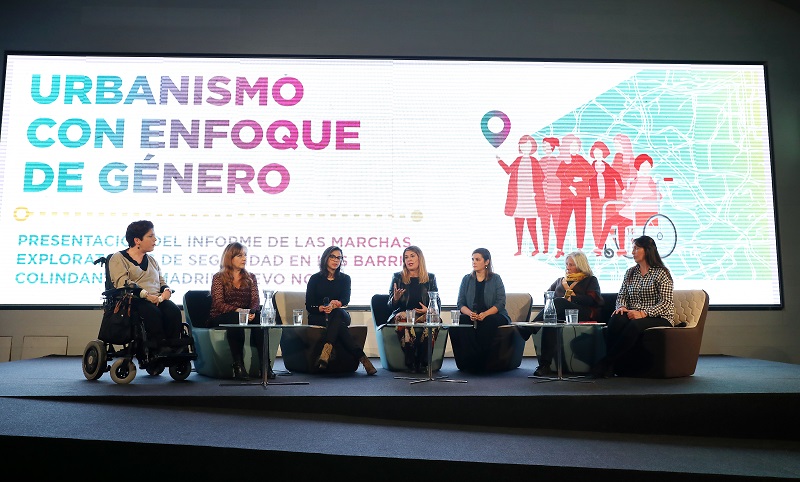
Gema Del Pozo –Director of DCN’s Department of Social Engagement– was in charge of introducing the event and, accompanied by Inés Novella –a researcher with the UNESCO Chair and author of the report–, they explained the project and its results. “As we conducted this project, the aim was to find out what difficulties are faced by women in the districts around MNN in their everyday lives. With that information, we meant to try and avoid repeating those same mistakes in the future MNN” said Gema Del Pozo.
“The fact is that such a large project, embedded in the city of Madrid and that will directly impact more than half a million people” as they point out at DCN’s Department of Social Engagement, “cannot be turned away from residents”. Incorporating their real needs into the project through participation is key.
Therefore, Madrid Nuevo Norte is a unique opportunity to rethink the current city concepts and include the gender perspective into city planning, design and management.
“It has been shown that the gender perspective applied to any discipline, urban planning included, helps to improve. If it is followed and well done, it provides better urban planning for everyone, not only women”, Inés Novella explained during the presentation.
There are topics within the field of urban planning and territorial planning that are especially relevant to gender, and there are matters that have to do with political, citizen and technical processes that accompany planning and are also relevant to gender.
When we talk about a gender perspective applied to urban planning, everything revolves around the fact that men and women live the city differently because they lead a different life. Women remain the main caregivers of others, children and the elderly, and so they perform different activities, go to different places, move differently and, therefore, despite being in the same setting –the city–, their relationship with that setting is, as a matter of fact, different.
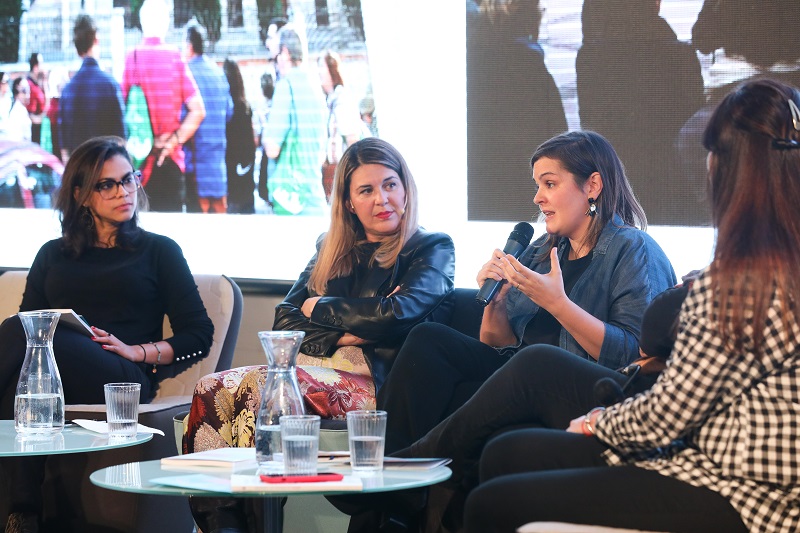
“Women are one of the groups that make the greatest use of public spaces, turning them into experts because of their dual vision: human beings and citizens as well as companions or caretakers for another person. They have the capacity to look out not only for themselves but for many people who also belong to vulnerable groups and who often lack the capacity to reach out to the citizen participation and technical decision-making processes related to urban planning” continued Novella.
This project focused mainly on two aspects related to gender applied to urban planning: public space quality and perception of insecurity; and participation, although many other aspects were discussed. As it turns out, women are much less present than men in participatory processes and, by working with them, other population sectors that experience problems when using the city, are also represented. “Their voice is less garnered in any participation and decision-making process and therefore their specific needs, different from those of men, are recorded less simply because they do not participate and then information does not reach where it should. That is why getting information from women, about their knowledge and daily experience, about what is happening around MNN, and getting their participation are key”, Inés Novella explained.
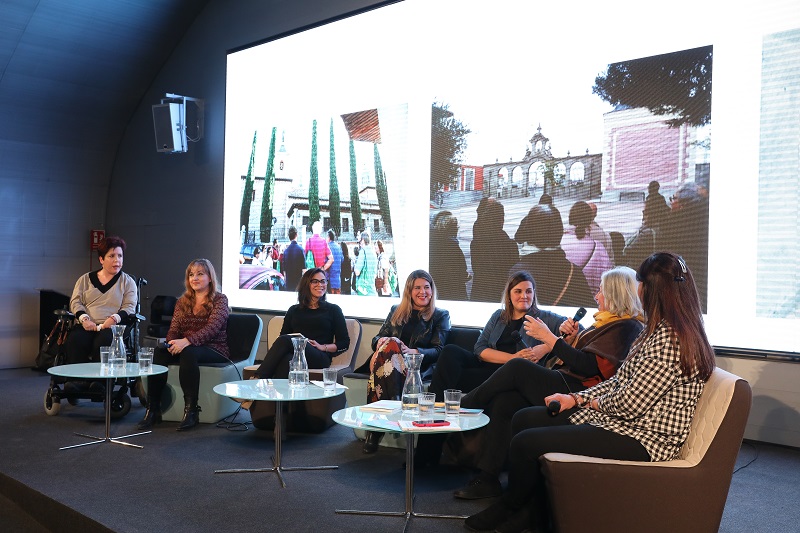
This project involving women began with the workshops and focused on three districts adjacent to MNN: Fuencarral, Chamartín and Las Tablas. These are three very different districts, urban-planning and socio-demographically speaking. And so, different topics were worked on: spatial matters, human issues, and the key partners of the project, women.
“In each district, we started working with a different purpose since they are different and so, the gender approach, in principle, was also different; although similarities were found. In the workshops we talk, we discuss off-plan, we think about images, we listen to them, we give them the chance to talk about certain topics. We get a map of perception of insecurity and the areas they like and why and which routes they usually walk through” explained Novella.
After the workshops, we had the audits, also called walkarounds. The safety walkarounds are not new. They originated in the early 90s in Toronto. It is an on-site evaluation of a site felt as problematic or unsafe and is performed by a group that is representative of the community. The main objectives of the walkarounds carried out in the north of Madrid were to gather information on the quality and functioning of certain city areas and work alongside women, who “are city experts, but they do not know it” said Novella. “We wanted to explore with them areas that they know very well, and talk to them, listen to them. They know better than anyone else what problems there are and what their priorities are, how to improve their neighbourhood, what they need.”
Besides, in this case, the work takes advantage of their full potential, as it is aimed at a specific project, Madrid Nuevo Norte, and has been developed with DCN’s Technical Department, feeding the entire technical process and adding the results to the project.
The real protagonists of this project were, in fact, the women who participated in the workshops and walkarounds. Hence, some of these women within the sphere of activity of MNN participated in the official presentation of the report. Novella explained that “it is very interesting to work with women in their own neighbourhoods since women very much define how the territory is perceived”.
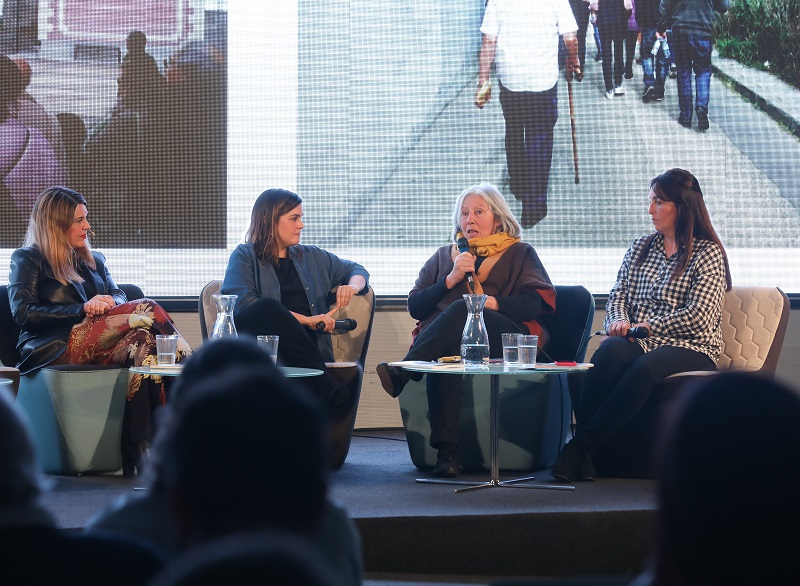
Ana Etchenique and Esther Rodríguez, residents in Fuencarral; Teresa Valle and Montserrat Martínez, residents in Chamartín; and Lizeth Morán, resident in Las Tablas, were in charge of explaining their experience throughout the whole process, focusing each on their own district.
The first to take the floor was Ana. In her view, the work done with DCN and the UNESCO Chair is just a first step. “I found this project among women very interesting, the workshop, the methodology, the issue of security on which it was based… What we want is that our neighbourhood, our district, be more taken care of, better served and that there are more projects like this around participation and communication. We have to lobby for the social side, the neighbourhood side, which is so important, and this step has been fundamental and I think it is just the first one and we must continue” she highlighted.
For Esther, the workshop project has meant a vision of her neighbourhood that she did not have before. “I realized the insecurity felt by people who do not live in the neighbourhood. They are scared in certain areas, because of the lack of visibility, because they are in alleys, etc. What seems normal to me, because I live there, other people perceive as unsafe.” In fact, in Fuencarral the areas perceived as most unsafe are around public transport, Metro and Commuter Train. “This situation greatly limits the mobility of people that use public transport the most, that is women”, Novella said. And promoting the use of public transport is precisely one of the key assets for the development of the north of Madrid.
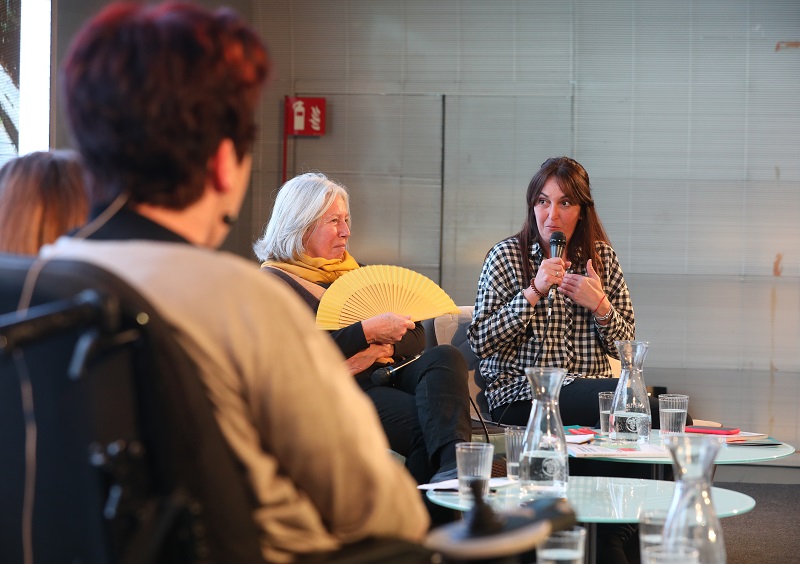
“I found the workshop very interesting because nobody had asked me before what obstacles I find in my neighbourhood in my everyday life. As a person with limited mobility, I find many obstacles when it comes to moving around. I need to constantly change routes in order to avoid obstacles. I thought it was a great initiative” said Teresa about Chamartín. She, like many of the women who participated in the workshops and walkarounds, wanted to attend in order to learn about other women’s opinions and discuss the hurdles they face in their everyday lives. “I wanted to tell my experience, listen and share.”
Meanwhile, Montse defined the initiative as wonderful. “I found it interesting that they wanted to count on me, that they wanted to know my opinion. We are not used to neighbours being asked about it –although we are the ones who really know our neighbourhoods. It has been very uplifting and I have become aware of some of the issues in Chamartín.” And she added that “urban planning affects the lives of citizens and even more so in the case of women. It should be the other way around; urban planning should make our lives easier.” Also, in Chamartín, the area perceived as the most dangerous is around public transport, in this case, Chamartín Station.
Lizeth said with the workshops, they gained a vision of how urban planning impacts your way of interacting with the city and with the people around you. “Urban planning should allow us to interact with each other, enjoy the outdoors and live the city.” In this sense, Las Tablas district faces many issues, especially related to the lack of infrastructure and communal street life. As Inés Novella explained, “some of the women participating in the workshops and walkarounds realized that while they had a car and could drive, they could lead a nice life in Las Tablas, but everyday life without a car could prove complicated.” Moving to other areas of the city with greater communal street life is felt as a likely possibility, even though it does not improve their situation.
After the talk, everyone present was invited to participate in the project, drawing their own experience as users of the city. Everyone who wanted could draw on some large maps, those areas that seemed safer and those they perceived as unsafe, as well as those that seemed more or less accessible.
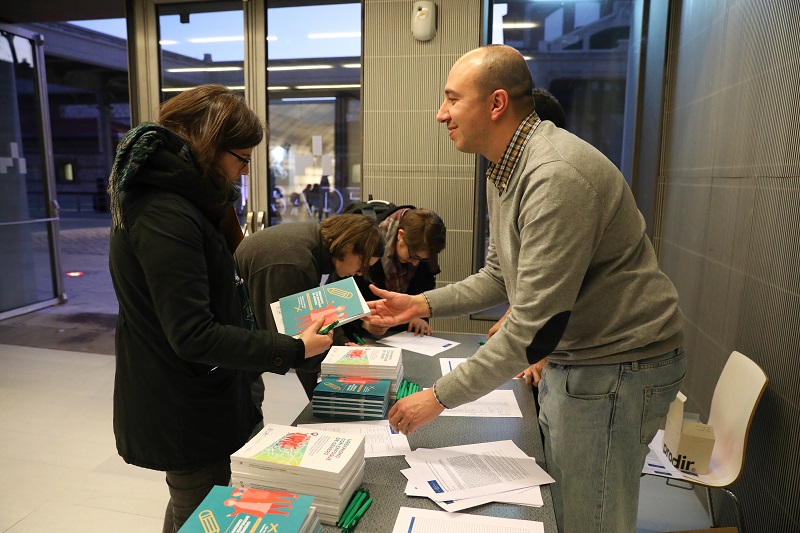
“The work done with women in this project is only part of a larger process”, concluded Gema Del Pozo. DCN’s Department of Social Engagement works with citizens, and the results are transferred to the technical team. “Our intention is to continue working with women in all the stages to come. We want them to also take part in the construction and design of the city. And, in addition, having a gender perspective in urban planning means that you complete a better project for everyone, not only for women, and that you take into account things that you might have missed”. There is still a lot of work ahead.
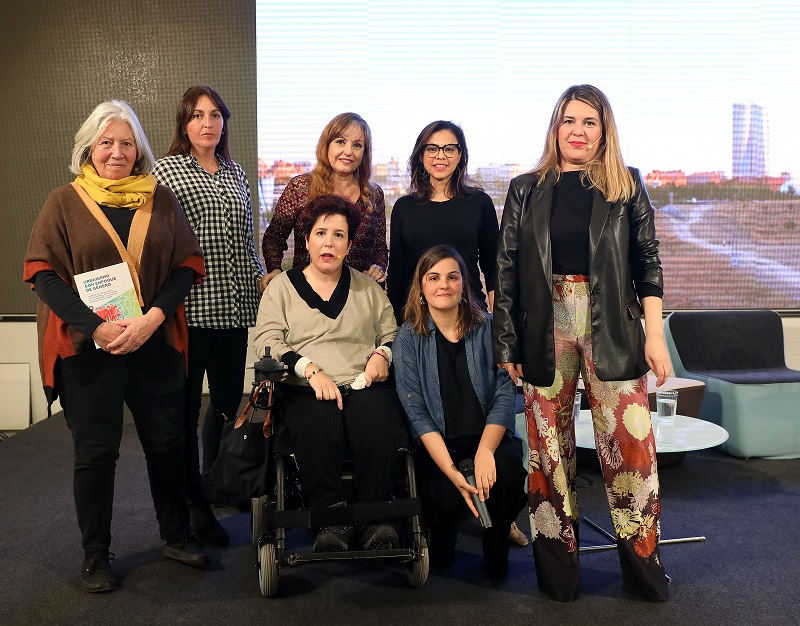
Ana Etchenique; Esther Rodríguez; Montse Martínez; Teresa Valle; Lizeth Morán; Inés Novella y Gema Del Pozo